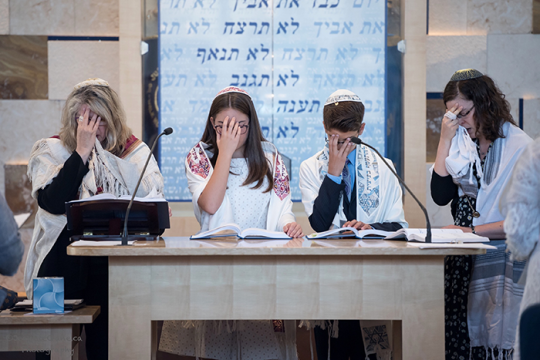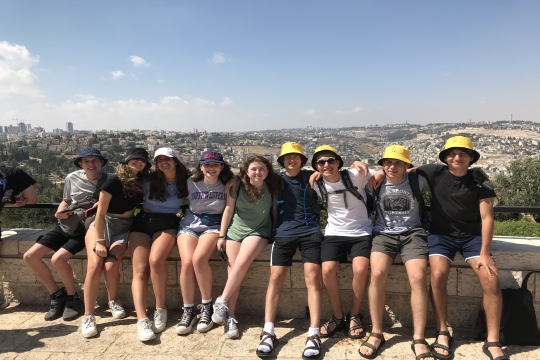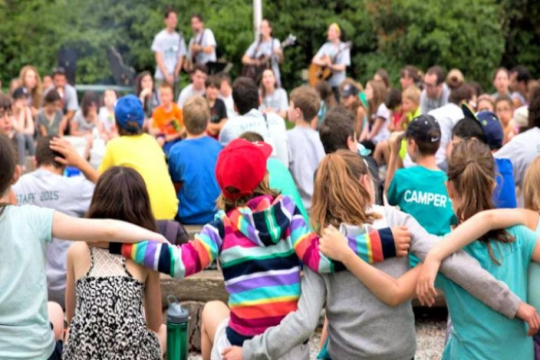In 2014, when I joined Temple Sholom in Chicago, IL, as the director of lifelong learning, the congregation was in the initial stage of participating in the URJ’s B’nai Mitzvah Revolution (BMR), together with 10 other Reform and Conservative congregations in the Chicagoland area. We were seeking ways to infuse the beginning of the b’nei mitzvah process with something more meaningful than a date assignment, and to find ways for families to connect to each other and to experience Shabbat.
Our clergy-educator-lay leader team met regularly with the URJ's BMR Chicago cohort senior project manager to explore possibilities and opportunities and over time, we began to see recurring themes, although each of us had our own view of how best to achieve our goals. Eventually, we settled on a framework for making incremental change that incorporated various approaches, and used that framework to try to revive a congregational retreat to connect families together.
Unfortunately, our efforts met with little interest.
Narrowing the focus, we thought, might improve the response rate, which is how our third-grade family b’nei mitzvah retreat was born. We deliberately chose to focus on third-graders, whose families comprise a critical mass of religious school and member families. In addition, third grade is the year in which the b’nei mitzvah date assignment process begins. I set a modest goal of 10 families – a nice Jewish number and about one-sixth of the third-grade families – to participate in the retreat, which would be held at URJ OSRUI.
During the second year of our participation in the BMR, I met monthly with the URJ's BMR Chicago cohort senior project manager to strategize about recruitment and plan activities for the retreat. Although it was daunting to create a three-day program from scratch, our regular meetings proved essential. Even when I had no time to focus on the retreat, I never cancelled our meetings because we always accomplished a great deal and got to the next step. Together, we organized logistics, crafted outreach, and planned parent, child, and family programs. More than incremental change, incremental progress was our true revolution.
In the end, 10 families participated in an incredibly amazing retreat!
Participants played games, studied Torah, and got to know each other. We had a few unplanned successes, including an afternoon of sledding and spontaneous dancing during Shabbat services. Adult conversations were engaging and interesting. The kids bonded and got excited about attending OSRUI together, and almost all of them signed up for the summer! When we evaluated the experience with the adults at the end of the weekend and asked about future activities, unanimously they wanted to return to camp for another retreat! What’s more, once back home, the families came to our next family Shabbat, enthusiastic about their shared experience at OSRUI.
This year, therefore, we're organizing a b'nei mitzvah retreat for third- and fourth-grade families. We've planned a program track for returning families, reached out to last year's attendees, fired up our 10-week marketing plan, and, once again, anticipate a fun time for all!
Although the Chicago BMR cohort has wrapped up its work, it offered our congregation – and me – numerous benefits. In addition to a wildly successful retreat that we can replicate annually, we heard about other congregations’ experiments and accomplishments, giving us novel ideas and possibilities to try in our own community. We enjoyed our time in the BMR cohort – and look forward to our next evolution.
To learn more about this and other b’nei mitzvah innovations, visit the URJ B’nei Mitzvah Revolution and the URJ B’nei Mitzvah Revolution interactive Innovations Guide.
Have something to say about this post? Join the conversation in The Tent, the social network for congregational leaders of the Reform Movement. You can also tweet us or tell us how you feel on Facebook.
Related Posts

Becoming Bet Mitzvah

A $3,250 Gift for Your B’nei Mitzvah Teens
